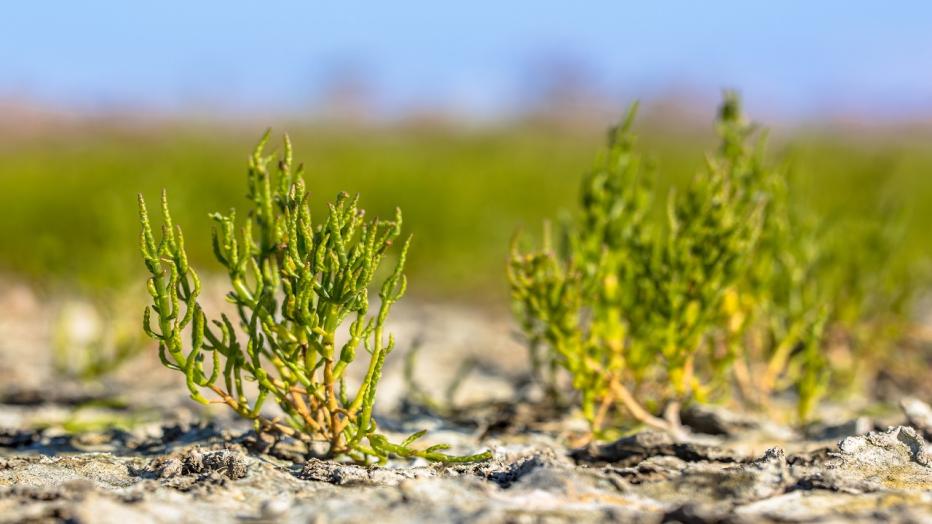
In January, Jacobs watched closely as Etihad Airways flight EY77 made its usual scheduled trip from Abu Dhabi to Amsterdam. The flight was the first commercial Boeing 787 flight to use an aviation biofuel produced locally in Abu Dhabi by the Sustainable Bioenergy Research Consortium (SBRC)’s Seawater Energy and Agriculture System (SEAS) research facility at Khalifa University’s Masdar campus.
The SEAS research facility is tackling the challenges of food, water and energy security head-on, using non-arable land and seawater to cultivate aquaculture, whose nutrient rich wastewater is used to grow oil-rich Salicornia plants, which can be harvested and used in aviation biofuel production.
Jacobs delivered engineering design services to the project in 2015, providing the ecological, agricultural and engineering skills required to develop the high-level concept for the facility into a viable operating facility.
“The engineering solution for SEAS was complex and required a deeply collaborative approach,” said Jacobs Regional Director of Delivery for the Middle East and SEAS Project Manager Imelda Mannion. “The project team worked with SBRC to translate research from across the water resources and agricultural industries into an effective engineering solution for the facility that addressed complex irrigation challenges, special requirements of salt-tolerant vegetation, and engineering requirements for managing waters of a wide range of salinities.”
SBRC and project partners Masdar Institute – a part of Khalifa University of Science and Technology, Abu Dhabi National Oil Company (ADNOC), Boeing and Etihad Airways, then developed the process to refine the oil from the Salicornia plants into jet fuel using a process similar to refining conventional crude petroleum.
The Etihad Airways flight EY77 on January 15, 2019, was a major milestone for SBRC and its partners, and a big step towards a more sustainable future. “Etihad’s flight proves SEAS is a game-changer that can substantially benefit air transport and the world…this process delivers sustainable fuel and food on land that we cannot farm, using water we cannot drink,” said Vice President of Strategy and Market Development for Boeing International Sean Schwin.
“This is a great example of how collaboration across a range of industries can deliver a technologically viable solution that provides a more ecologically sustainable alternative to what is currently available,” said Jacobs Buildings and Infrastructure Senior Vice President and General Manager for Asia Pacific and Middle East Patrick Hill. “I’m excited to see the results of the next phase of the project focused on the economics of scaling up the refining process as an effective method of energy production for the long term.”












































